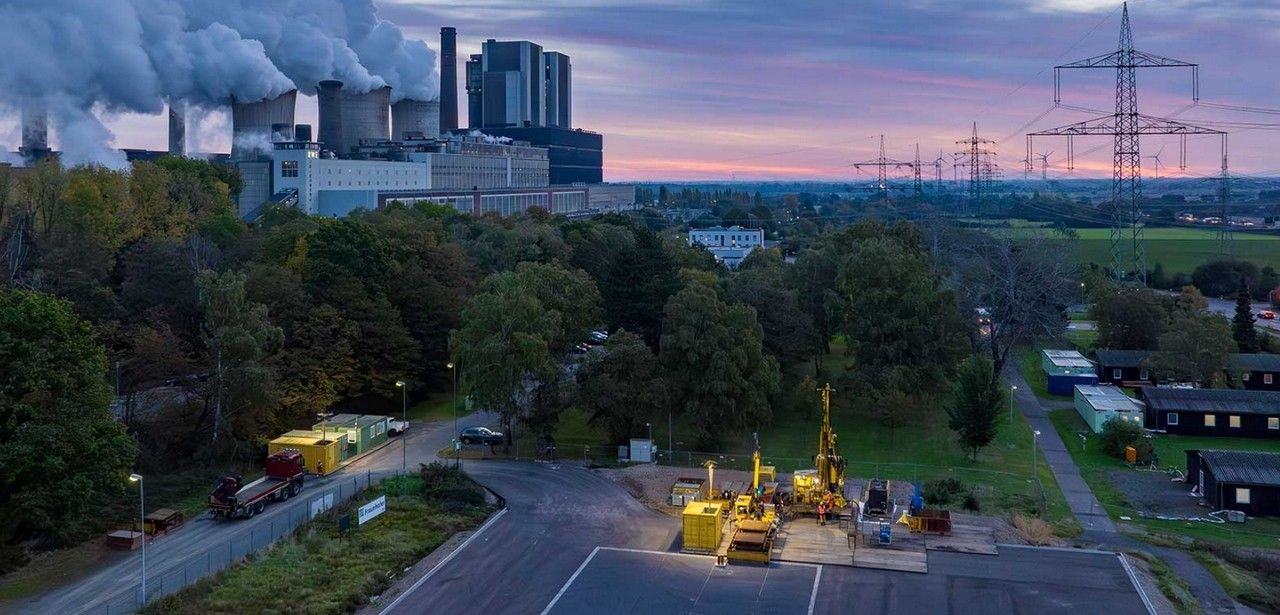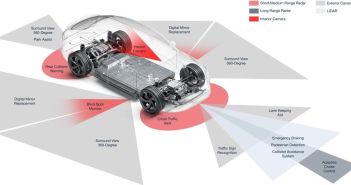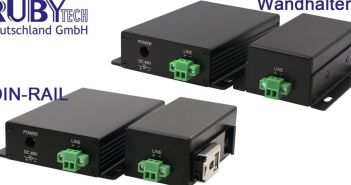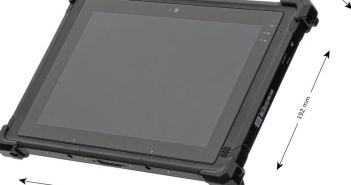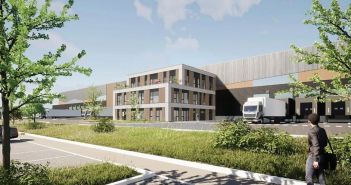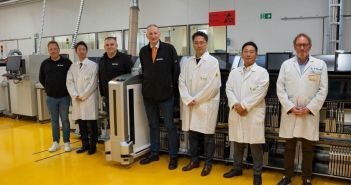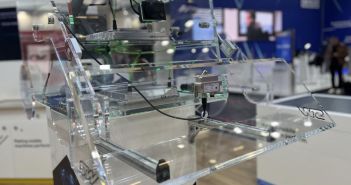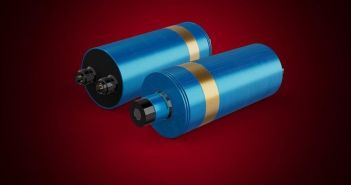A team from RWE Power is currently conducting a drilling operation in the vicinity of the Weisweiler power plant, aiming to reach a depth of approximately 100 meters. This drilling serves the purpose of exploring the subsurface and preparing for the extraction of heat from deep underground, known as geothermal energy. The project is part of the international Interreg research initiative called DGE-ROLLOUT, which is coordinated by the Geological Service of North Rhine-Westphalia (NRW).
Table of Contents: What awaits you in this article
Exploring geothermal potential: Research project investigates underground heat sources
Geothermal energy is a promising alternative to traditional energy sources, and the ongoing research project led by the Geological Service of NRW aims to explore the potential of harnessing this heat from the underground. By conducting thorough investigations of the subsurface near the Weisweiler power plant, the project aims to gather valuable data that will be crucial in unlocking the geothermal potential of the region.
Drilling for a Sustainable Heat Supply: An Important Milestone
A team from RWE Power has conducted a drilling operation to explore the underground and prepare for the search for geothermal energy. This drilling, which reaches a depth of approximately 100 meters, is part of the international Interreg research project DGE-ROLLOUT, coordinated by the Geological Service of NRW. The data collected from the drilling will be evaluated by the Geological Service of NRW and then handed over to the Fraunhofer Institute for Energy Infrastructure and Geothermal Energy IEG for further development into a seismological observatory.
Geothermal Energy: The Future’s Heat Source
The utilization of geothermal energy offers numerous advantages. Hot water from the depths has already been utilized for heating purposes in many European cities. The region of NRW can also benefit from geothermal energy as an alternative and environmentally-friendly heat source. Aachen, for example, has been benefiting from this local energy source for building heating since Roman times. Past experiences have shown that geothermal energy is a reliable and sustainable heat source.
Harnessing the Power of Thermal Water for Sustainable Energy
Thermal water, extracted from deep underground, has the potential to replace fossil fuels such as natural gas and lignite coal in district heating systems. This has already been successfully demonstrated in cities like Munich, Paris, and the Netherlands. Geothermal energy can also provide sustainable heat for various industrial processes in North Rhine-Westphalia. When combined with large-scale heat pumps, geothermal energy can become a significant pillar of the energy transition.
A Milestone for the Heat Transition in NRW
The ongoing drilling operations in Weisweiler mark a significant milestone in the utilization of geothermal energy in the state of North Rhine-Westphalia (NRW). The valuable data and insights obtained regarding the geological layers in the region will serve as a crucial foundation for making informed decisions in the future. Recent studies conducted by the Fraunhofer IEG have revealed that deep geothermal energy has the potential to cover at least a quarter of Germany’s current heat demand. NRW, in particular, boasts a vast geothermal potential, making geological explorations such as drilling and seismic measurements essential in unlocking this resource.
Geothermal Energy: A Sustainable and Climate-Friendly Heat Source
Geothermal energy offers significant advantages for NRW, as it has the potential to replace fossil fuels such as natural gas and lignite, thereby contributing to the reduction of CO2 emissions. In addition, it can provide sustainable heat for various industrial processes in NRW. The utilization of thermal water as a heat source represents a new technological element in the energy transition and further supports the regional structural transformation. The drilling activities in Weisweiler provide valuable data and insights for the exploration of geothermal potentials in NRW. Current studies indicate that deep geothermal energy could meet at least a quarter of Germany’s current heat demand. Geothermal energy is therefore a sustainable and environmentally friendly heat source with significant potential for the heat transition in NRW.
The exploration and utilization of geothermal energy is a crucial step towards sustainable and climate-friendly heat supply. The ongoing drilling activities in Weisweiler are providing valuable data and insights for further development of geothermal potential in NRW. Geothermal energy has the capability to replace fossil fuels, thereby contributing to the reduction of CO2 emissions. It offers a reliable and sustainable heat source for the future, making it an integral component of the energy transition and regional structural transformation.
The 100-meter deep drilling is initially evaluated by the Geological Service NRW. It is then handed over to the research partner Fraunhofer Institute for Energy Infrastructure and Geothermal IEG for expansion into a seismological observatory. This turns the drilling into part of a network of monitoring stations for the deep underground in the Weisweiler area. Next year, a second exploration drilling, about 500 meters deep, will be carried out next to it. Fraunhofer will install a geothermal probe to supply the observatory.
Geothermal Energy: A Sustainable Heat Source for NRW
Geothermal energy, in the form of hot water from deep underground, has been successfully utilized for heating purposes in numerous European cities. This renewable energy source has the potential to become an alternative and environmentally friendly heat source for the state of North Rhine-Westphalia (NRW) in Germany. Aachen, for example, has been benefiting from this indigenous energy source since Roman times, using it for building heating. The current project aims to showcase the modern contribution of geothermal energy to municipal heat planning and collect essential data for the transition towards sustainable heating in the southern Rhineland.
Thermal water as a sustainable alternative to fossil fuels
Hot thermal water can serve as a sustainable alternative to fossil fuels like natural gas and lignite coal in district heating systems. This has been successfully demonstrated in cities such as Munich, Paris, and the Netherlands. Furthermore, when combined with large-scale heat pumps, geothermal energy can provide sustainable heat for various industrial processes in the state of North Rhine-Westphalia (NRW).
RWE Power explores geothermal energy for sustainable district heating
The utilization of thermal water for district heating in the region, as proposed by RWE Power, would represent a groundbreaking advancement in the field of renewable energy. The implementation of a district heating pipeline from Weisweiler to Aachen would facilitate the transmission of regeneratively sourced thermal energy, aligning with RWE’s commitment to the regional transition towards sustainability. This initiative, akin to their wind and solar projects in the area, serves as a tangible contribution to the ongoing regional structural transformation.
Steps towards geothermal heat supply require local data
The exploration of deep geothermal energy for heat supply in Weisweiler is in progress, with the aim of gathering local and reliable data on the geological layers in the region. These data will serve as a basis for future decisions regarding the implementation of deep geothermal energy. The ongoing drilling activities in Weisweiler are expected to provide valuable insights into the underground structure. Based on this information, further exploratory drilling for thermal water extraction could be conducted under the supervision of Fraunhofer IEG. Geophysical surveys, including drilling and seismic measurements, are essential for unlocking the geothermal potential of NRW.
Geothermal energy: A sustainable and climate-friendly heat source for NRW
Geothermal energy offers significant advantages for NRW, as it has the potential to replace fossil fuels such as natural gas and lignite coal in district heating systems, thereby reducing CO2 emissions. Furthermore, it can provide sustainable heat for various industrial processes in NRW. The utilization of thermal water as a heat source represents a new technological development in the field of renewable energy and contributes to the regional transition towards a more sustainable economy. The ongoing drilling activities in Weisweiler are crucial for gathering valuable data and insights for further exploration of geothermal potentials in NRW.


